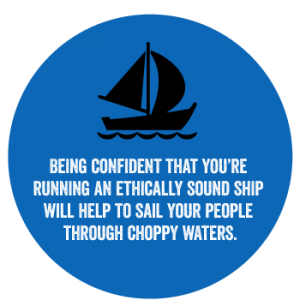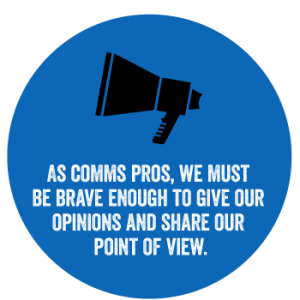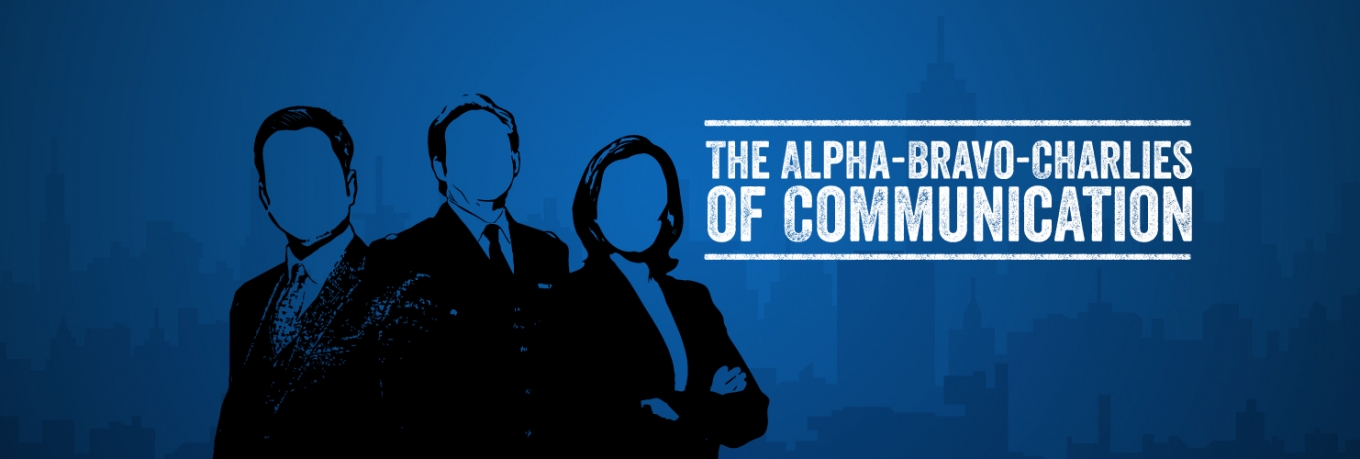Rug-pull twists you don’t see coming, ever changing plot lines, complex curve balls and constantly changing goal posts…
Sounds familiar?
Yes, Line of Duty has gripped the nation with its ever-unfolding plotlines, but we could also be describing a week in your average organisation.
There’s always a new challenge to manage, unexpected complications to consider and different perspectives to deal with.
With so many opposing agendas, people pushing the story in their preferred direction and conflicting objectives to achieve, communication can become confused.
Simplifying a message and getting absolute clarity is tough as things move fast and there can be all manner of different colleagues and stakeholders coming at things from their own corner.
- What is the truth? What is factually correct and what isn’t?
- What is the single most important message we need to share?
- How can we promote the right behaviours to manage complex communication?
The bold and brilliant characters from Line of Duty can teach us a lot about commendable communication. A lot of this boils down to clear and present comms basics and a foundation in professionalism and integrity.
So in this era of fast moving facts and constantly changing priorities, what can we learn from the experts at AC-12?
A lesson in trust and honesty
Ted Hastings, chief of AC-12 is a man with morals of iron. He’s well known for his direct approach, his black-and-white view of the law and his commitment to truth and justice. The epitome of integrity.
Rachel Miller of All Things IC often refers to the importance of ‘a single source of truth – a place employees know they can go to get reliable and honest answers and information’. When facts are unclear or a crisis is unfolding, a reliable internal source of truth is vital.
How well do you know your lines of communication? Can they always be trusted? When was the last time you audited your internal comms channels and asked employees where they head for to get the cold hard facts? Be confident that this actually exists and that employees have a trusted source of information during chaotic times.
A lesson in ethics and fairness
Just like a comms department, a lot of information flows through Detective Sergeant Steve Arnott.
And he’s well known for doing the right thing with that information. After refusing to collude with his fellow colleagues following the shooting of an innocent man in the early days, Arnott has certainly proven himself as another of AC-12’s moral compasses.
Steve Arnott’s word is his bond, but can we say the same for everyone? Communication is all about people and people can make mistakes, particularly when the way ahead is unclear.
Prioritising fair and ethical behaviour is something worth remembering and being confident that you’re running an ethically sound ship will help to sail your people through choppy waters.
Does your organisation have a code of ethics? Is it clear and transparent? Does it make sense? Is it promoted continually or hidden away in a handbook? Regular training in ethical behaviour ensures that when under pressure, facing time challenges or managing conflicting points of view, people know how to do the right thing.
A lesson in persistence
Along with Steve’s resolute commitment to honesty and integrity, his relentless persistence is a force to be reckoned with.
Like a dog with a bone he keeps on going until he gets to the truth of the matter.
He never stops questioning and this journalistic quality is a useful strength for internal comms pros. Never take things at face value when it comes to reaching the heart of any message.
A lesson in confidence and bravery
DS Kate Fleming prides herself on being the consummate professional. She’s trained to the highest standard in her chosen field and continues to develop herself and her career. She’s confident in the choices she makes and her position within AC-12.
It can sometimes be hard to stand up and be decisive, to be brave enough to give our opinions and share our point of view, even with the most senior colleagues in our organisations.
As comms pros, we should have faith in our own abilities and be confident that we’re trained to make the right decisions, however complex the situation may be. Being present at the right conversations and saying what we think is vital for maintaining and protecting our positions.
Kate Fleming has had to face some tough decisions, often under challenging and pressing circumstances. But taking a bold and confident approach to those situations has paid off.
The Alpha-Bravo-Charlies of communication
Meaningful, honest and effective communication can be hard to achieve when unpredictable plots and turbulent twists are constantly unravelling. While we’re not tackling crime and corruption within our ranks, we can still practice the fundamental behaviours of trusted, ethical and confident communication.
















